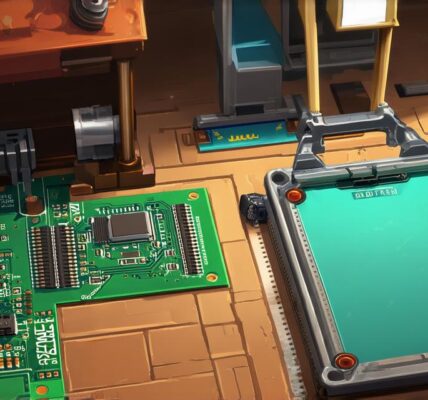As technology continues to advance, video games have become more sophisticated and complex, requiring a diverse set of skills and expertise to develop them.
In this article, we will explore the requirements and steps necessary to become a successful video game developer, including education and skills, experience and portfolio, certifications and training, networking and collaboration, salary and job opportunities, and frequently asked questions (FAQs).
Education and Skills
Before diving into the world of video game development, it’s essential to have a solid foundation in computer science, programming, and game design. A bachelor’s degree in computer science or a related field is usually required for entry-level positions in the industry. However, some individuals may be able to break into the field with a strong portfolio of personal projects or work experience in a related area.
Skills such as coding proficiency in languages like C++ and C, game engines like Unity and Unreal Engine, and 3D modeling software like Blender are essential for success in video game development. Additionally, knowledge of game design principles, storytelling, and level design is also crucial.
Experience and Portfolio
While formal education is important, practical experience and a strong portfolio are equally valuable in the world of video game development. Many successful developers have built their careers through internships, freelance work, or modding communities. These experiences allow individuals to gain hands-on experience in various aspects of game development, such as programming, art, and design.
A strong portfolio showcasing personal projects, including game prototypes and demos, is also essential for landing a job in the industry. This allows potential employers to see an individual’s creativity, technical skills, and understanding of the industry. Personal projects can demonstrate an individual’s passion and dedication to the field, as well as their ability to work independently or collaboratively with others.
Certifications and Training
In addition to formal education and experience, there are several certifications and training programs available to individuals looking to become video game developers. These include online courses, boot camps, and certification programs offered by organizations such as the International Game Developers Association (IGDA) and Udemy.
Certifications like the IGDA’s game design certification can provide individuals with a recognized credential that showcases their expertise in the field. Additionally, training programs like game jams or hackathons can allow individuals to quickly gain experience in various aspects of game development while networking with other developers and industry professionals.
Networking and Collaboration
The video game development industry is highly collaborative, and building strong relationships with other developers, artists, and industry professionals is essential for success. Attending industry events like Game Developers Conference (GDC) or E3, joining online communities like Reddit’s r/gamedev or the Unity community, and participating in open-source projects can all help individuals build their network and gain valuable insights into the industry.
Collaborating with other developers on personal projects or contributing to open-source game engines like Unity or Unreal Engine can also provide opportunities for individuals to gain experience and exposure in the industry. Collaboration allows individuals to learn from others, share knowledge and resources, and build a network of contacts that can be invaluable in their career.
Salary and Job Opportunities
The salary and job opportunities in video game development vary depending on factors such as experience, location, and job title. According to Glassdoor, the average salary for a software developer in the gaming industry is around $80,000 per year, while a game designer can earn upwards of $120,000 per year.
There are numerous job opportunities available in the video game development industry, including positions as programmers, artists, designers, producers, and executives. The industry is constantly evolving, with new technologies and platforms emerging all the time. This means that individuals who are adaptable, have a passion for learning, and are willing to take on new challenges can find success in this exciting field.
FAQs
What skills are necessary to become a video game developer?
Skills necessary to become a video game developer include coding proficiency in languages like C++ and C, game engines like Unity and Unreal Engine, 3D modeling software like Blender, knowledge of game design principles, storytelling, and level design.
Can I break into the video game development industry without formal education or experience?
While formal education and experience are valuable, it’s possible to break into the industry with a strong portfolio of personal projects or work experience in a related area. Personal projects can demonstrate an individual’s passion and dedication to the field, as well as their ability to work independently or collaboratively with others.
What certifications or training programs are available for individuals looking to become video game developers?
Organizations such as the IGDA and Udemy offer certifications and training programs for individuals looking to become video game developers. These can include online courses, boot camps, and certification programs that provide valuable knowledge and skills for the industry.
How important is networking in the video game development industry?
Networking is highly important in the video game development industry, as it allows individuals to build strong relationships with other developers, artists, and industry professionals, share knowledge and resources, and gain valuable insights into the industry.
Summary
Becoming a successful video game developer requires hard work, dedication, and a strong understanding of various aspects of the industry. While formal education and experience are essential, practical experience through internships, freelance work, or modding communities can also be valuable. Building a strong network with other developers, artists, and industry professionals is also crucial for success in the field. With the right skills, knowledge, and experience, individuals can break into the exciting and rewarding world of video game development and create immersive and engaging experiences for players around the world.
ClassicEditor
.create( document.querySelector( ‘#summary’ ) )
.catch( error => {
console.error( error.stack );
} );





